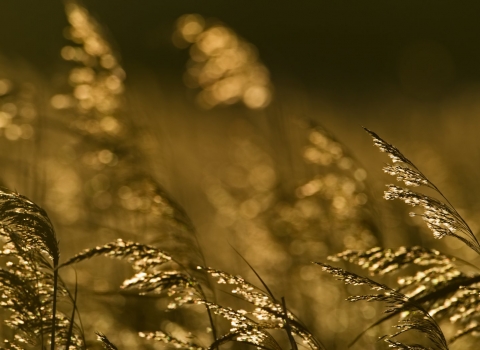As a research assistant at the University of East London (UEL), coming into the final year of a PhD focussing on wet farming, I’m extremely lucky to spend my time acting as an explorer! Developing and trialling new ideas that can help our world become more sustainable through science is great fun: most of summer is spent outside running experiments on wetlands across the UK and abroad. These experiments look at site condition, plant growth, and taking water measurements, the rest of my time is in the office making sense of the data.
My wetland journey began back in 2012, starting at UEL on a legal case looking at peat extraction on a wetland in Cumbria; the site had been drained and dug to use the peat for compost and growing media. Looking out over this flat, bare peat landscape, I realised we needed to protect our precious wetlands before we lose them - ever since I've been inspired to look at options that can achieve this.
Wetlands are important for many ecosystem services: they absorb carbon from the atmosphere to help climate change, provide a home for plants and animals, while cleaning and retain drinking water. However, wetlands can only do this when they remain wet and waterlogged - unfortunately, most have been drained and damaged for human use over time, including conversion for agriculture. These damaged ‘agriculturalised’ wetlands are a source of carbon emissions and contribute directly to climate change. These emissions will continue to happen for as long as the soils are drained and this problem won’t go away unless we find a solution.
The emerging idea of wet farming could be that solution; it involves ‘re-wetting’ damaged wetland soils, while maintaining the cultivation of specialist wetland plant species for a wide variety of uses. With a bit of research, expert input from the farming community and a willingness to try new things we can develop wetland farming in the UK. This will reduce carbon emissions while providing sustainable raw materials, food and energy!






